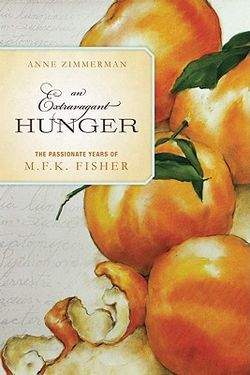By Evan Dawson, Managing Editor
 There will come a time, long after we are dead, when writers and researchers will wonder who some of us were. Not that we existed, but who we were to our core, what drove us, how we responded to challenge and tragedy. I suspect that the ease of communication in the modern era will make a full accounting of written communication more difficult for researchers. After all, who keeps many emails or text messages in the way we once filed letters away?
There will come a time, long after we are dead, when writers and researchers will wonder who some of us were. Not that we existed, but who we were to our core, what drove us, how we responded to challenge and tragedy. I suspect that the ease of communication in the modern era will make a full accounting of written communication more difficult for researchers. After all, who keeps many emails or text messages in the way we once filed letters away?
We can be thankful that M.F.K. Fisher came to prominence in an era that required hand-written and type-written notes and letters. And we can be thankful that such records, carefully preserved, found a thoughtful writer in Anne Zimmerman to make sense of them.
An Extravagant Hunger: The Passionate Years of M.F.K. Fisher is an extraordinary book, careful and diligent and often wise in its estimation of the famous food writer. Most impressively, it's an outstanding read, a true page-turner in league with the best narrative non-fiction.
Author Anne Zimmerman clearly spent many, many days studying the letters and writings of M.F.K. Fisher. Zimmerman seeks to tell the story of who Fisher was (and what led her to become the woman she was) in her early years. The book covers Fisher's childhood through her second marriage, which ended tragically.
It is simply fun and inspiring to read M.F.K. Fisher in her own private words instead of trying to decipher the woman through her public writings. Zimmerman does not overwhelm the narrative with excerpts, but uses them nourishingly and effectively. And we find that Fisher was undeniably a tremendous writer, as even her daily musings sound effortlessly poetic.
But it is also an emotional grind to follow the passionate years of Mary Frances Kennedy Fisher, because they are often wrenchingly sad. From Fisher's misguided first marriage to her loss of the true love of her life, we journey around the world and back with a young woman who seems followed by sadness.
It is easy, thanks to Zimmerman, to understand why M.F.K. Fisher became so enamored with food. Her first view of food was literally of forbidden fruit, thanks to a traditional grandmother. Then food became the outlet for her creativity and her passion, rising while her relationships fell.
Zimmerman relied on letters, but she was cleverly selective in sketching the portrait of the young M.F.K. Fisher. Zimmerman notes that Fisher's letters home from Europe often contradicted her other writings, so instead the author uses the more frank and intimate letters from friends to Fisher and her responses to them. Those are the moments when even the enigmatic M.F.K. Fisher could hardly obfuscate. Zimmerman trims away the confusion to allow a clear view of this remarkable writer.
M.F.K. Fisher could easily have been a modern-day blogger. That is not a pejorative. The great food writer would chronicle each meal and write in bursts, and blog writers are wise to study Fisher's work.
In the end, readers are likely to feel satisfied and nourished, having experienced just enough spice to keep the book interesting. That is, it turns out, exactly what M.F.K. Fisher loved most about food. Whether Zimmerman attempted to parallel that with her writing, we don't know, but she pulls it off beautifully. The language only rarely attempts to dazzle, like a carefully spiced dish that allows each element to shine without one ever overwhelming another. Anne Zimmerman should be proud of her work. It seems certain that M.F.K. Fisher would be.
